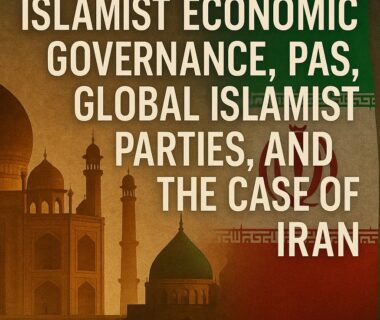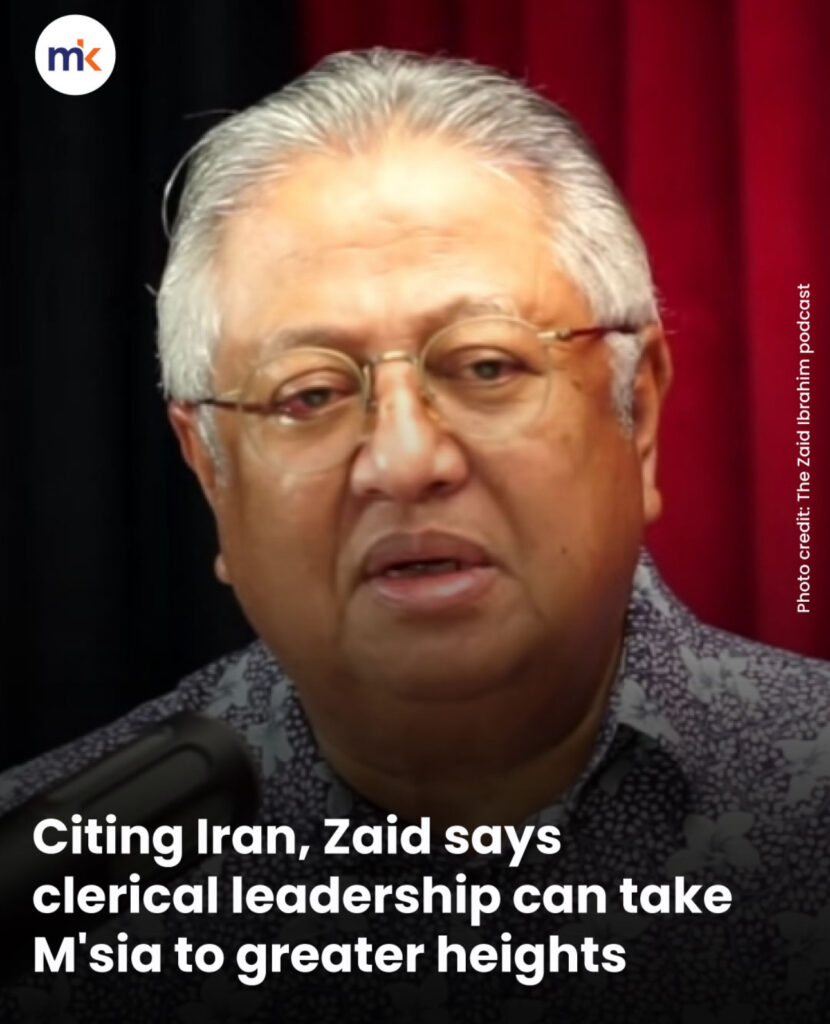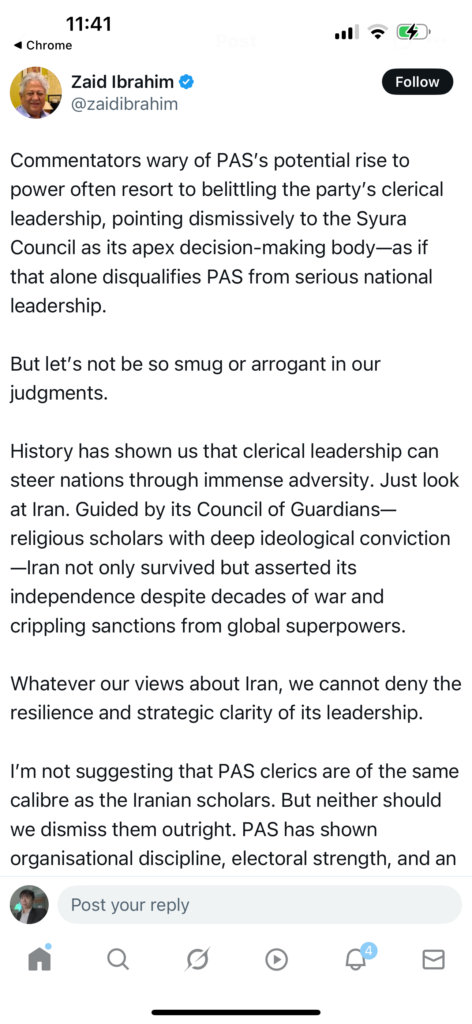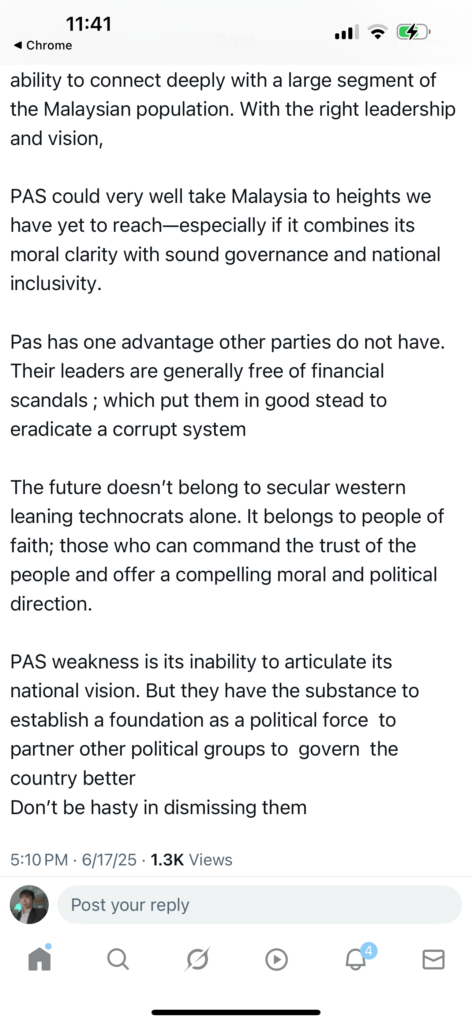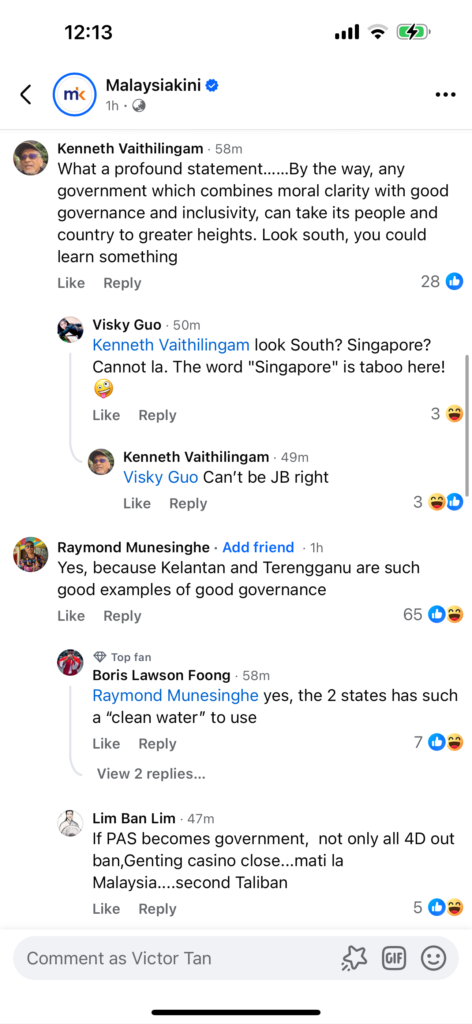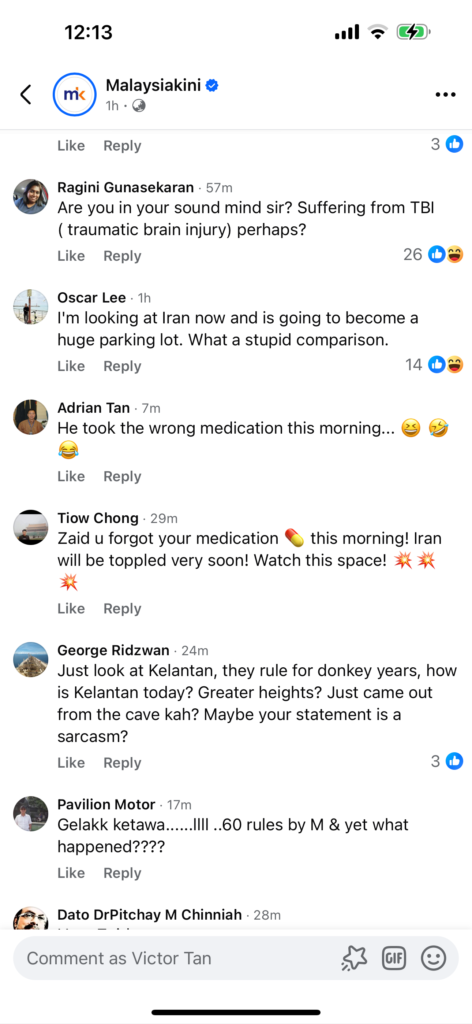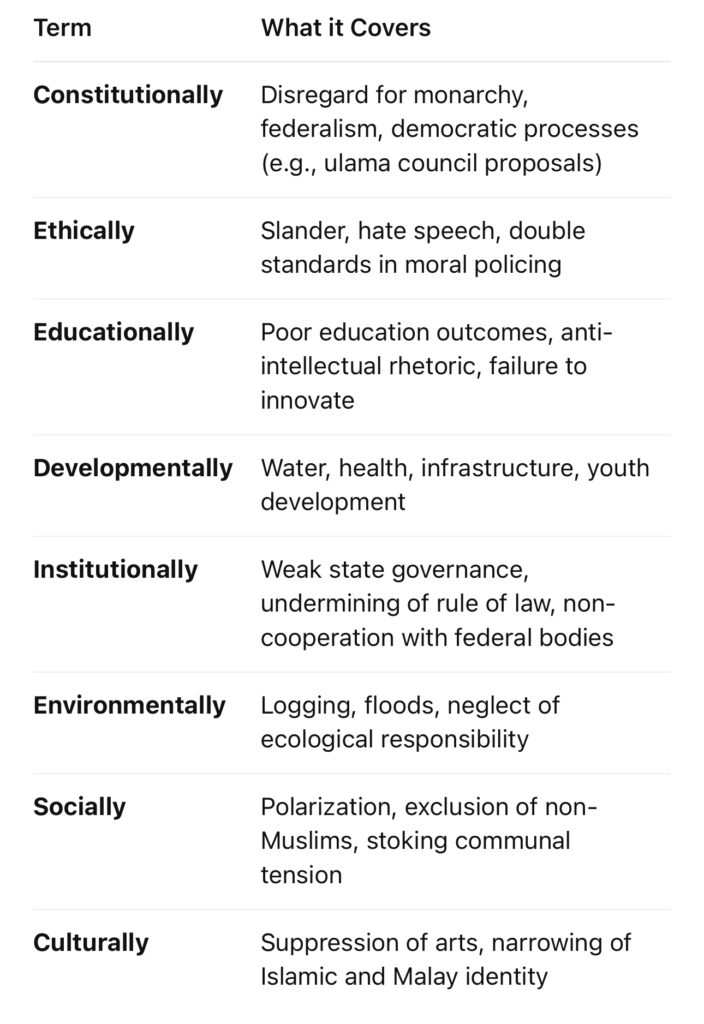If you don’t know who I am or why I’m calling myself a sepupu, you are in the right place!
Well, here’s your answer.
I am sepupu, you are sepupu, we are all sepupu. 😭
The jokes aside though, it means “cousin” in Malay, and I am effectively calling you all my cousins.
Now why would I do that even though this is an international site and maybe “Sepupu” might kill the SEO or something all too arcane for me to understand let alone care about…?
Because of a legendary woman whose achievements are too great to leave forgotten in the tides of history, whether she comes from a country that is really economically relevant in the world in the grand scheme of things, or not.
Without further ado…
May I present to you the one… The only.
The Queen Sepupu, Siti Mastura.

In a speech in November 2023, Siti Mastura declared that everyone on earth was a sepupu – a cousin, if we’re to translate that into English.
Lim Kit Siang and leader of the then Malaysian opposition became the sepupu of Chin Peng, the leader of the Malayan Communist Party, Anthony Loke too became a sepupu, and so did Teresa Kok and Betty Chew (Wife of Lim Guan Eng), and countless others, like Nga Kor Ming, and Ngeh Kong Him (poor Ngeh Koo Ham), all of whom are only not included here because this lady couldn’t get the name right despite having her PhD.
Oh, but her ambition did not stop there.
Before long, in the middle of her touching delusional rant, the sepupu network extended across time and space and eventually went across borders, apparently, to the point that somehow or another everyone became the sepupu of “Lim Kuan Yew”, the “Chief Minister” of Singapore.
I made this video to immortalise what she said.
Feel free to watch it, to join a gang of sepupus, and to check out my work on YouTube as well 😀
Can’t watch at the moment and can only read? No problem! Here’s a transcript and translation.
Original (BM) – Paragraphed
Kalau kita tengok dalam salah silah keluarga satu individu ini, ayah dia bernama Lim Kit Siang. Anak dia nama Lim Guan Eng. Lim Kit Siang, Lim Guan Eng — dua beranak. Lim Kit Siang dan Chin Peng, apa hubungan ni? Apa? Sepu…? Sepupu!
Siapa Chin Peng? Siapa Chin Peng? Ketua Komu… Komunis! Yang sebelum ni viral isu nak bawa balik abu mayat dia ke Malay? Malaysia.
Lim Kit Siang dan Chin Peng — alah sepupu. Lim Kit Siang dan Lim Guan Eng — alah dua beranak. Lim Kuan Yew, siapa? Siapa? Siapa? Ketua Menteri Singapura. Apa hubungan dengan Lim Kit Siang dan juga Chin Peng?
Sepu…? Sepupu! Lim Kuan Yew dan Lim Kit Siang? Chin Peng? Sepu…? Sepupu! Nampak tak susur galur dia? Nak katakan apa?
Lim Kuan Yew duduk di Singapura hari ni. Apa yang telah dia buat di Singapura kita nampak model-model itu sedang berada di Malay…? Malaysia. Dan hari ni mereka tidak pernah tidur, dan salah silah keluarga mereka akan buat sehabis daya.
Itu tak habis lagi tu. Saya sebut nama tu — Lim Guan Eng masih ada di sidang parlimen. Teresa Kok — YB mana? Parlimen…? Sepu? Seputeh!
Apa kaitan Teresa Kok dengan depa ni? Teresa Kok, isteri Lim Guan Eng tu? Dengan Teresa Kok…? Sepu…? Sepupu!
Anak-anak nakan depa… kalau orang… apa maksud anak nakan? Anak saudara ke? Anak saudara ya? Ya, astagh…
Anak-anak saudara dia pun yang masih lagi wujud dalam keturunan Chin Peng ni, keturunan Lim Kit Siang ni, yang ada di parlimen hari ni, yang ada di ADUN hari ni. Siapa?
Antara yang lain — Anthony Loke. Siapa lagi? Nga Kor Ming. Siapa lagi? Ngeh Koo Ham.
Ini semua nama Melayu ke? Nama Cina? Semua yang saya sebut ni wujud lagi dah dekat Malaysia? Hidup lagi tak? Hidup.
Nak sebut apa? Agenda mereka, satu keluarga, sentiasa berjalan. Dan sentiasa melahirkan pengkaderan-pengkaderan dalam kalangan ahli keluarga serta parti mereka. Mereka.
English Translation – Paragraphed
If we look at the family lineage of this one individual — his father is named Lim Kit Siang. His son is Lim Guan Eng. Lim Kit Siang, Lim Guan Eng — father and son. Lim Kit Siang and Chin Peng — what’s their relationship? What? Sepu…? Cousins!
Who is Chin Peng? Who is Chin Peng? The head of the Com… Communists! The one whose ashes went viral when there was an attempt to bring them back to Malay…? Malaysia.
Lim Kit Siang and Chin Peng — they are cousins. Lim Kit Siang and Lim Guan Eng — father and son. Lim Kuan Yew — who is he? Who? Who? The Chief Minister of Singapore. What’s his relationship with Lim Kit Siang and Chin Peng?
Sepu…? Cousins! Lim Kuan Yew and Lim Kit Siang? Chin Peng? Sepu…? Cousins! Do you see the pattern now? What do I want to say?
Lim Kuan Yew is in Singapore today. What he’s done in Singapore — we’re seeing that same model here in Malay…? Malaysia. And today, they’ve never stopped — their family lineage will do everything it can.
And that’s not even all. I mentioned that name — Lim Guan Eng is still in Parliament. Teresa Kok — which YB is that? Parliament…? Sepu? Seputeh!
What’s Teresa Kok’s connection to them? Teresa Kok — Lim Guan Eng’s wife? With Teresa Kok…? Sepu…? Cousins!
Their nieces and nephews… if people… what’s the meaning of “anak nakan”? Nephews and nieces, is it? Yes? Astagh…
Even their nieces and nephews still exist — descendants of Chin Peng, of Lim Kit Siang — who are still in Parliament today, still in the state assembly today. Who?
Among them — Anthony Loke. Who else? Nga Kor Ming. Who else? Ngeh Koo Ham.
Are these all Malay names? Or Chinese names? All the names I’ve mentioned — do they still exist in Malaysia? Are they still alive? Yes, alive.
What does this tell you? Their agenda — one family — is always moving. And always producing more cadres among their family members and within their party. Them.
Now why am I creating a drama about this and even naming a literal site after her?
What a weird take? What a specific situation? What a challenging situation why would you even…?
Well, it is because politics and economics are inseparable from one another, and also that I was completely horrified, shocked, and disgusted as a human being.
Understand that as a Malaysian, I care about my beautiful, imperfect, slightly more imperfect than beautiful country – and this woman was destroying everything I believed in, openly, willingly, and getting supported by hypocrites pretending to be the ultimate defenders of their religion while openly taking part in slander.
What was worse?
Those hypocrites take part in foreign interference, want to destroy my country’s constitution and monarchy, revamp and destroy my society while pushing a twisted version of their religion while declaring that murder and slander are greater sins than secularism, and they have the gall to act as if they are the representatives of the people.
Here she was, a woman with a PhD, a literal representative of the people, giving a speech with absolutely no facts about history in it, a speech either filled with lies if she knew those things were false (how on earth do you get Lee Kuan Yew wrong and who told you there’s a ‘chief minister of Singapore?!’), or incompetence if she didn’t do any research despite the fact that she has a literal PhD.
I could not believe the level of nonsense I was listening to – and that too from someone moonlighting as a ‘representative of the people’ from a party openly supporting her that happens to command the largest number of seats in parliament, showcasing that people actually believe and support this nonsense.
I figured that if this is the kind of absurdity we’re getting on a daily basis… We may as well embrace that absurdity and make something good out of it.
Here’s what I said, and I stand by every single word.
Skip it if you already watched the video or if you did watch it and you want to refresh yourself, have a look.
According to Siti Mastura, I am a sepupu, you are sepupu, and everybody else is a sepupu.
There’s a bit of a twist right here that apparently makes some people think that Siti Mastura is a genius.
According to them, Siti Mastura got all that information from a propaganda book. She is splitting apart Barisan Nasional and also the DAP, which by the way are political enemies of the PAS. So some people are going out there and saying that this makes her so smart, oh my gosh, she has 900 IQ.
The thing is that if this is her justification for this right here, I don’t know if it’s going to stand in court. You see, the BN Com’s book obviously is bringing out spurious false information.
So if she believed it, then in that case, then she didn’t actually seek out evidence, which is weird because she’s a PhD and that’s exactly what you’re supposed to do. You can’t make spurious claims or you’re doing research right there.
So then what kind of research was she doing? What kind of PhD did she get? But if she didn’t believe it somehow, but she then said it anyway, then in that case, she lied – and although Siti Mastura did say that you can’t judge people on the basis of three minutes of speech right there, and actually there were 24 minutes, that video is now long gone. It doesn’t exist anymore.
What can we see from the speech though? We can see clearly that there was no sense of logic, no sense of facts, no sense of reports either, as she used religion to try to justify her lies.
And by the way, says that it’s a speech, not a thesis, and therefore she shouldn’t have to use evidence.
What is a fact is that this lady actually is the MP for Kepala Batas. This is the kind of thing that we’re seeing out there in the Malaysian parliament – She won an election; it means that there are people who are actually attracted to this kind of politics out there in Malaysia.
What does it mean if there’s a whole generation of people out there who are actually genuinely believing this kind of nonsense that you see out there?
But see, the inconvenient thing about democracy is that it doesn’t stop being democracy just because things aren’t going your way, and understanding that makes you understand that many of Siti Mastura’s supporters want her to tell the lies that she is telling. That’s a fact.
On the Malaysian side, we are linked.
We are tied to race and religion politics in many negative and unproductive ways right here; there’s a ton of communalism wherever it is that you go, and with PAS, there’s a special breed of this which manifests in telling people that they should destroy vernacular schools, no attempt to discuss the economy, no attempt to increase harmony, and a continual religious bigotry that is deeply negative towards the social fabric of a multicultural, multidiverse, and multicivilizational Malaysia.
At the end of the day, if you don’t educate Malaysian people, then there will be a hundred more Siti Masturas that will spring up, even if you happen to take this particular one down, and so long as the people of Malaysia or of any other country happen to remain uneducated.
But it’s not just PAS as well. Many of us we cleave to our own communities out there. We depend upon race, religion, and narratives about the other being evil and destructive to our society so much that oftentimes there is a lot of tension that comes about because we don’t understand one another and we refuse to understand one another.
And so on my part, I think that at the bare minimum, we should normalise taking politicians to account to what they say right here.
And of course, Siti Mastura is still in court at the moment.
But I think that if she actually is sued and DAP actually wins in this case right here, then that will show to Malaysia as a whole that parliamentarians cannot say whatever it is that they want and then just get away with it.
We need a better kind of politics. I think we should cultivate a generation of people who aren’t afraid to speak up and to take people like this to task and call them out for basically the things that they’re saying on a day-to-day basis.
Ideally though, this won’t just happen on YouTube or in urban centres where this video may be watched, but also in rural areas where this kind of content doesn’t necessarily reach people where linguistic barriers may exist.
So if you have power to speak out and to change these communities, let them know that something is better, then please go ahead and do so and you will contribute towards a better Malaysia – The people of Malaysia for so long have just been so used to this kind of nonsense that it is really normalised amongst us, but hopefully in this case it’s going to take us to account right here because frankly, nobody in their right mind is going to believe that somebody like Siti Mastura can go ahead and get away with it without being questioned along the way.
There is something better out there, and politics doesn’t always have to be about race, religion and all sorts of nonsense out there.
At the end of the day, somehow or another, we, the Malaysian people, can actually move forward without playing into politics and nonsense.
That’s said, this is your average daily sepupu signing out. Thanks for watching – I’ll see you soon.
Well…
This site is my doing my best to educate people, to build a business based on knowledge and to empower not only my country but my world.
It is an effort to make sure that if there are a hundred Siti Masturas that will spring up, there will be thousands more from not only Malaysia but also beyond the borders of the country who will understand when politicians make stupid statements that are not justified.
It is not a trivial problem, it is not a simple problem, it is a problem that exists right now, it will exist after you become educated – because the problem is not just you, the enlightened one.
It is hundreds of thousands leading up to millions of people who don’t even speak English and never will who fall into this kind of garbage narrative caught up with wild conspiracies about family members that actually have no genetic relation conspiracies based on race, brought together by religious hypocrisy, lies, gaslighting, and even more lies.
The thing you need to understand is this: if you feel that this makes you feel helpless in some small way, just know that it did make me feel that way as well. But somehow you are here and you are reading this. You may not even be from Malaysia and you may not even have heard about this woman before. But I think that you can see from what I am saying that there is a deep frustration in me about a problem that seems systemic and that cannot go away – But that I have decided to channel it into light rather than frustration.
It may seem a little odd that I take the trouble to remember something that causes me deep pain publicly on a grand scale not only to the few hundreds of you who visited on the first two days, but to thousands more people, and the thousands more who will come when you share this – just to one single friend and ask that friend to share again – so long as you find this useful, beneficial, and enjoyable for you.
Over time, though, the pain has given rise to absurdity, to the realization that this kind of thing cannot be my reality – That I cannot not reclaim sanity.
Well, let a hundred Siti Masturas and their fitnah flowers bloom. I am not here to save the world, but if I can, I will help more of you than that – if it would save my country somehow, I would consider it a blessing beyond all measure, but it is not something that I ask for.
I ask only that when you see this kind of hypocrisy in your own lives, please counter it with knowledge. When you see nonsense, please rebut it with logic. When you look at the grandiose plans of foolish leaders, please speak truth to power and deny foolish populists the right to compromise your will whether by gaining a voice or becoming so good at your choices that you’re successful in your careers, lives, and everything that you do will change the world around you, so that this will be something that you will be more than strong to bear.
Coincidentally, learning the skills to be able to do that is standard territory with economics, and that will be what we do here at Sepupunomics – Look through this kind of nonsense and these lies with the tools of economics and with logic.
Thank you for coming with me and thank you for going through the BS with me.
Remember, you are sepupu. I am sepupu. We are all sepupu… At least, according to Siti Mastura and her delulu gang.
Well, they can stay delulu and they can call us whatever they want. In the grand scheme of things, they will not matter – although they are welcome to delude themselves. Call the world a mere passing through, allege that they want to live for the afterlife, while justifying that their leaders must have amazing cars and amazing houses as their people suffer.
I have no idea if the political situation will change or if somehow these people will be confounded. What I know is this: whatever happens at the end of the day, they will not be relevant.
They can have their petty histories and their gaslighting.
We, on the other hand, will change what matters.
Till then, sepupus!
V.




